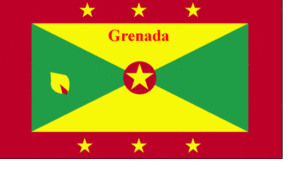 Education is the key to progress – so says the government of the Caribbean island nation of Grenada, which views education as a basic human need and right. Education of children ages 5-16 is compulsory and is provided through both public and private (largely church-sponsored) schools
Education is the key to progress – so says the government of the Caribbean island nation of Grenada, which views education as a basic human need and right. Education of children ages 5-16 is compulsory and is provided through both public and private (largely church-sponsored) schools
The Grenadian government has recently introduced pre-primary education for 3-4 year olds, which is meant to promote educational equality and ensure children are ready to attend elementary schools. Primary education caters to children in kindergarten through grade 6. At the end of grade 6, pupils take the Common Entrance Examination to gain access to secondary school, which consists of two cycles:
lower (Grades 7-9) and upper (grades 10-12). Students in the lower cycle study a range of subjects and narrow their focus in the upper cycle to specialize in more specific areas of interest. Students ages 14 and up who do not want to complete the upper cycle may take the School Leaving Certificate Exam in order to access opportunities in technical and vocational training centers.
At the end of secondary education, most students take Caribbean Secondary Education Certificate (CSEC) exams administered by the Caribbean Examinations Council (CXC). Scoring for the examinations are as follows, with the overall grade reflecting the student’s performance on the unit as a whole while the profile grade reflects performance on each module of the unit.
|
Overall Grades |
Profile Grades |
Description |
|---|---|---|
|
I |
A |
Candidate shows a comprehensive grasp of the key concepts, knowledge, skills and competencies required by the syllabus. |
|
II |
B |
Candidate shows a good grasp of the key concepts, knowledge, skills and competencies required by the syllabus. |
|
III |
C |
Candidate shows a fairly good grasp of the key concepts, knowledge, skills and abilities required by the syllabus. |
|
IV |
D |
Candidate shows a moderate grasp of the key concepts, knowledge, skills and competencies required by the syllabus. |
|
V |
E |
Candidate shows a very limited grasp of the key concepts, knowledge, skills and competencies required by the syllabus. |
|
VI |
F |
Candidate shows a very limited grasp of the key concepts, knowledge, skills and competencies required by the syllabus. |
T.A. Marryshow Community College uses the following grading scale:
|
Letter Grade |
Points |
Description |
|---|---|---|
|
A |
4.00 |
Excellent |
|
A- |
3.67 |
|
|
B+ |
3.33 |
|
|
B |
3.00 |
Good to Very Good |
|
B- |
2.67 |
|
|
C+ |
2.33 |
|
|
C |
2.00 |
Satisfactory |
|
C- |
1.67 |
|
|
D+ |
1.33 |
|
|
D |
1.00 |
Below Acceptable Standards |
|
D- |
0.33 |
|
|
F |
0.00 |
Failing |
Primary school students follow outcome-based programs in reading, English, math, social studies and science. High school curriculum includes the same core subjects and adds a foreign language requirement. Students may also study entrepreneurial business or choose from such vocational courses as hospitality, food and nutrition, and clothing and textiles. Information technology, electronics and technical drawing are also offered.
For Grenadian students wishing to pursue post-secondary educational opportunities, T.A. Marryshow Community College offers first-year university courses and associate degrees (two-year programs, except for nursing and pharmacy degrees, which require three years). St. George’s University offers 4-year bachelor’s programs in the arts and sciences in addition to degrees earned through its schools of medicine and veterinary medicine.
© 2025 Gaetranslations | Terms & Conditions
Website by: Timefortheweb